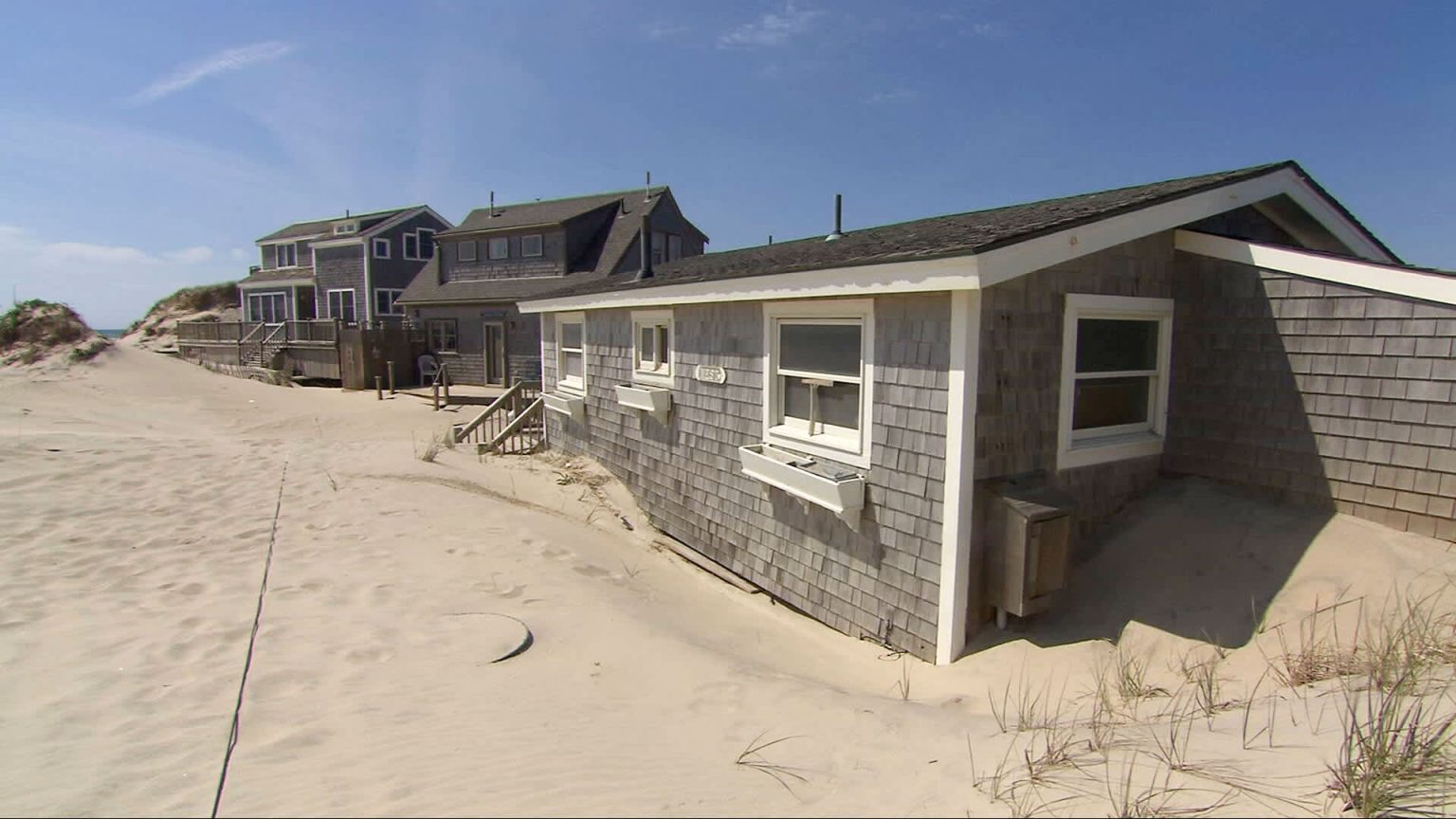Coastal real estate across the United States is facing unprecedented challenges due to rising sea levels and more intense storms caused by climate change. From Dana Point, California to Long Island, New York and Nantucket, Massachusetts, some of the most expensive waterfront properties are finding themselves in precarious positions. This year’s hurricane season is predicted to be above-normal, with up to 13 hurricanes expected, including major storms. The effects of climate change are already impacting the market, with properties losing significant value due to erosion and flooding. For example, a Nantucket home originally listed for over $2 million sold for just $600,000 after a Nor’easter wiped away 70 feet of the beach it was located on.
Shelly Lockwood, a real estate agent on Nantucket, has noticed several properties selling for significantly less than their expected value due to erosion risks. Some multimillion-dollar homes in areas like Montauk, New York, are facing challenges from increasingly severe and frequent storms. Concerned Citizens of Montauk are struggling to protect their properties, with flooding occurring at a faster and more devastating rate than ever before. In just ZIP codes along the East and Gulf coasts, a significant number of properties are at risk of flooding, with potential losses estimated at $100 billion according to First Street.
Attorney Chris Farley is assisting Nantucket homeowners in reducing their property taxes as their homes and beaches erode. Some properties have been reassessed while others have not, causing discrepancies in tax obligations. The changing landscape is causing value reductions in many homes, impacting the economy at a local level. On Nantucket, residents are determining which areas need the most assistance and how to fund these efforts. Similarly, in Montauk, plans for coastal resilience are being revised as they have become outdated due to the effects of climate change.
The rising ocean levels are causing sand to cover homes on Nantucket, leading to condemnations by the town when septic systems and utility wires are exposed. The erosion is happening at a rapid pace, with properties losing significant value in a short amount of time. Homeowner John Conforti has seen his property become buried in sand, with his home potentially losing millions in value due to the new risks presented by climate change. Without these challenges, his property would have been valued significantly higher, showing the drastic impact that environmental changes are having on coastal real estate.
Overall, the impact of climate change on coastal real estate is becoming increasingly clear, with homes losing value and facing erosion at a much faster pace than anticipated. As homes are reassessed and property taxes reduced, the local economy may suffer, leading to potential tax increases for all residents. Both Nantucket and Montauk are facing challenges in protecting their waterfront properties and determining how to adapt to the changing environment. With more severe storms predicted in the future, the issue of coastal resilience and property value loss will continue to be a significant concern for homeowners and communities across the country.


